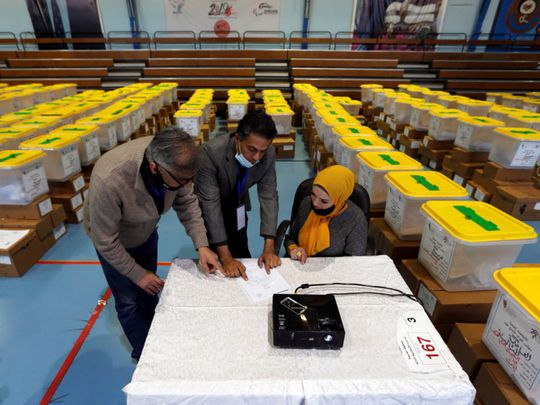
Amman: Jordanians vote on Tuesday for a 130-seat parliament, with tribal, centrist and pro-government deputies expected to remain dominant in a system that under-represents the cities where their Islamist and liberal opponents do best.
The elections coincide with public discontent as Jordan grapples with its worst economic crisis in many years, with unemployment and poverty aggravated by the COVID-19 pandemic.
Here are some facts about the election.
Parliamentary powers
Under the constitution, most powers rest with King Abdullah, a staunch US ally, who appoints governments and can dissolve parliament. The assembly can force a cabinet to resign by a vote of no confidence.
But successive governments have sidelined the almost toothless assembly.
Low turnout expected
Widespread apathy at an assembly viewed as rubber stamp for government policy and activist calls for a boycott in protest at the holding of elections despite an alarming surge in COVID-19 could lead to one of the lowest turnouts in decades, analysts and politicians say.
The government, which has mobilised around 45,000 security forces to oversee the nationwide ballot, hopes for a roughly 30 turnout among 4.6 million registered voters in a country with 8 million citizens.
There are 1,717 candidates, including 368 women, competing.
Twelve seats are reserved for minority Christians and Circassians and 15 for the top-polling women candidates.
Constituencies are structured so that urban areas have far fewer members of parliament per voter than the countryside.
Voting by mainly urban Palestinians, who form a large part of the population, is traditionally low.
Many of Jordan’s citizens are Palestinians, whose families settled after successive Arab-Israeli wars, placing the kingdom - which signed a peace treaty with Israel in 1994 - at the heart of decades of conflict.
Political parties
The elections are a contest between tribal leaders, establishment figures and businessmen, even though there are many more candidates running for recognised parties.
Electoral laws that favour tribal areas rather than cities, where Islamists enjoy most support, mean the main opposition party, the Islamic Action Front (IAF), the political wing of the Muslim Brotherhood will remain marginalised.








